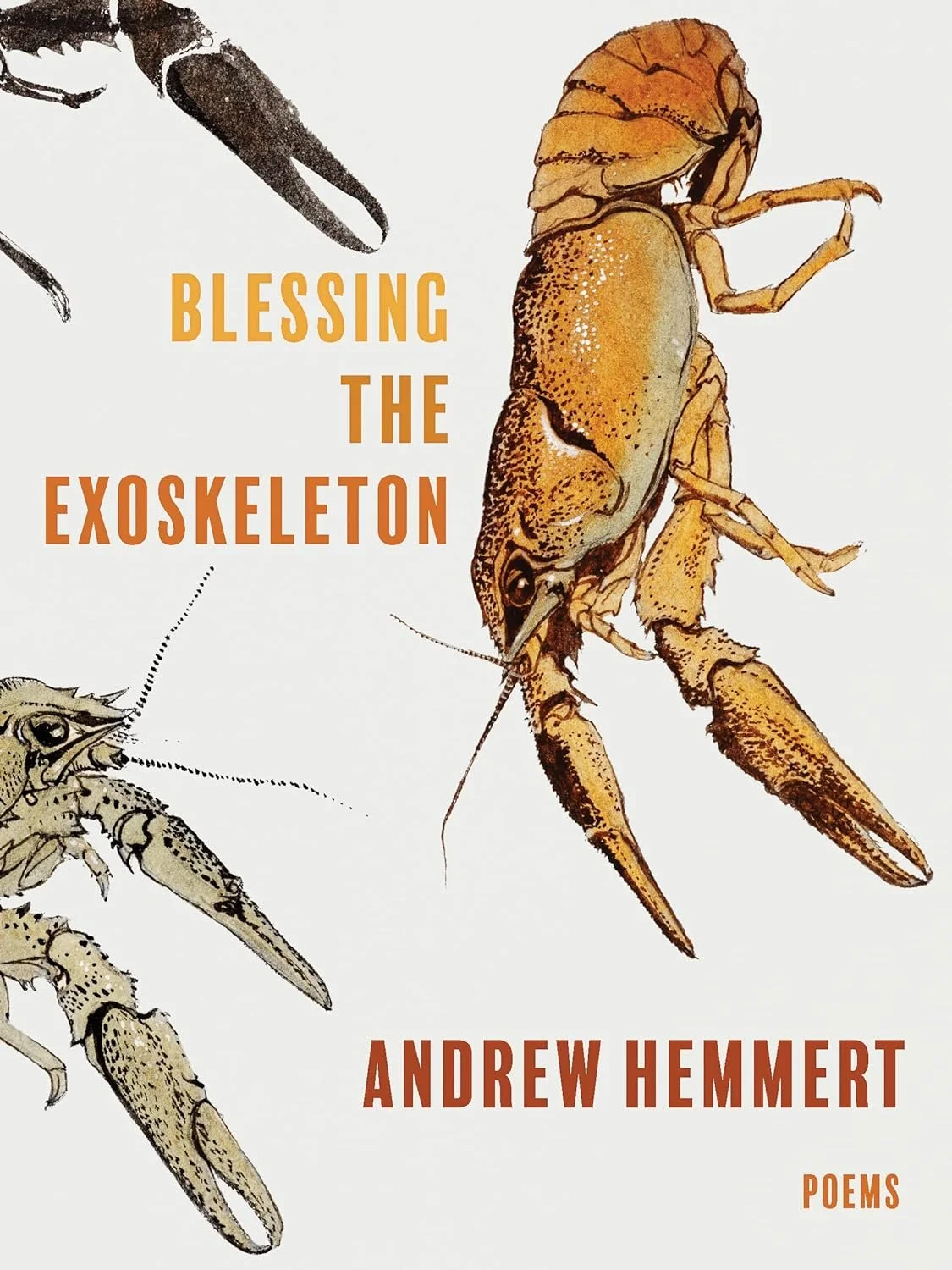Blessing the Exoskeleton by Andrew Hemmert
Review by Jacob Butlett
Haunted by a portentous mood tinged with wonder and worry, Andrew Hemmert’s Blessing the Exoskeleton will enthrall readers. It features vulnerable poems replete with symphonic rhetoric, shocking pathos, and thematic decadence.
Trepidation beautifully pervades Blessing the Exoskeleton. For example, in “Of Corridors,” Hemmert concedes:
Late
is the hour, as always,
or how I always feel
in any hour, as if
I am running
behind again, as if
down a gravel road
behind a pickup truck
with the hatch open […]
Hemmert employs short lines to quicken the poem’s pace, reflecting the content’s malaise. Moreover, he layers utilizes repetends to intensify the tone. For instance, he employs the simile “as if” twice, creating a conceit punctuated with dramatic assonance—especially “gravel,” “hatch,” and “catch.”
Blessing the Exoskeleton comprises worlds of psychological dismay, always narratively direct and visceral. In “Cadaver Theory,” Hemmert presents a classic, archetypal image of death: “Buzzards, when they enter / anything, enter through the eyes. In the cypress, their wings / were breathing like an organ.” Birds are a chief motif in the book. In “Signs and Wonders,” Hemmert remarks: “Driving to the Upper Peninsula / I hit a bird of some sort with my car. Then, on the way back, I hit another one / on the same lonely stretch of road.”
Blessing the Exoskeleton poses many key, existential questions, a few of which are as follows: How much of Life is shackled to Fate? Does Fate even exist? How can humanity survive when the world is overrun with so much sorrow? Personally, I picture hospital patients still dying from COVID-19, voters electing despots, homeless veterans begging for food and affordable housing.
There are no satisfactory answers to these questions, but that is the point: the goal is not to postulate half-baked answers to these questions. Instead, a goal of living is to experience the world, to understand it enough to cherish the parts that matter. Like cherishing an orange, as Hemmert depicts in “Oranges in Michigan”:
Inside I turned the orange like a knob
that would not open a door to anywhere
kinder, but a door to where I was
already. Warm, despite the weather.
Drinking the light that fell on distant groves.
Andrew Hemmert’s Blessing the Exoskeleton will seize readers’ attention from start to finish, making for a speedy, diverting read.
Jacob Butlett
Jacob Butlett is a Pushcart Prize-nominated author with an MFA in Poetry. He has been published in many journals, including the Colorado Review, Harbor Review, The Hollins Critic, and Into the Void. In 2023 he received an Honorable Mention for the Academy of American Poets Prize (Graduate Prize).



